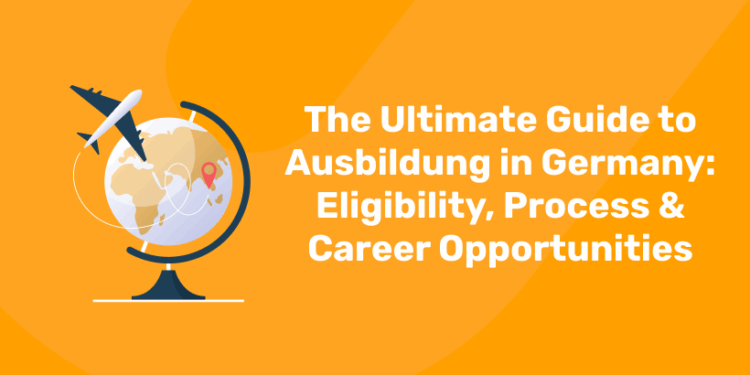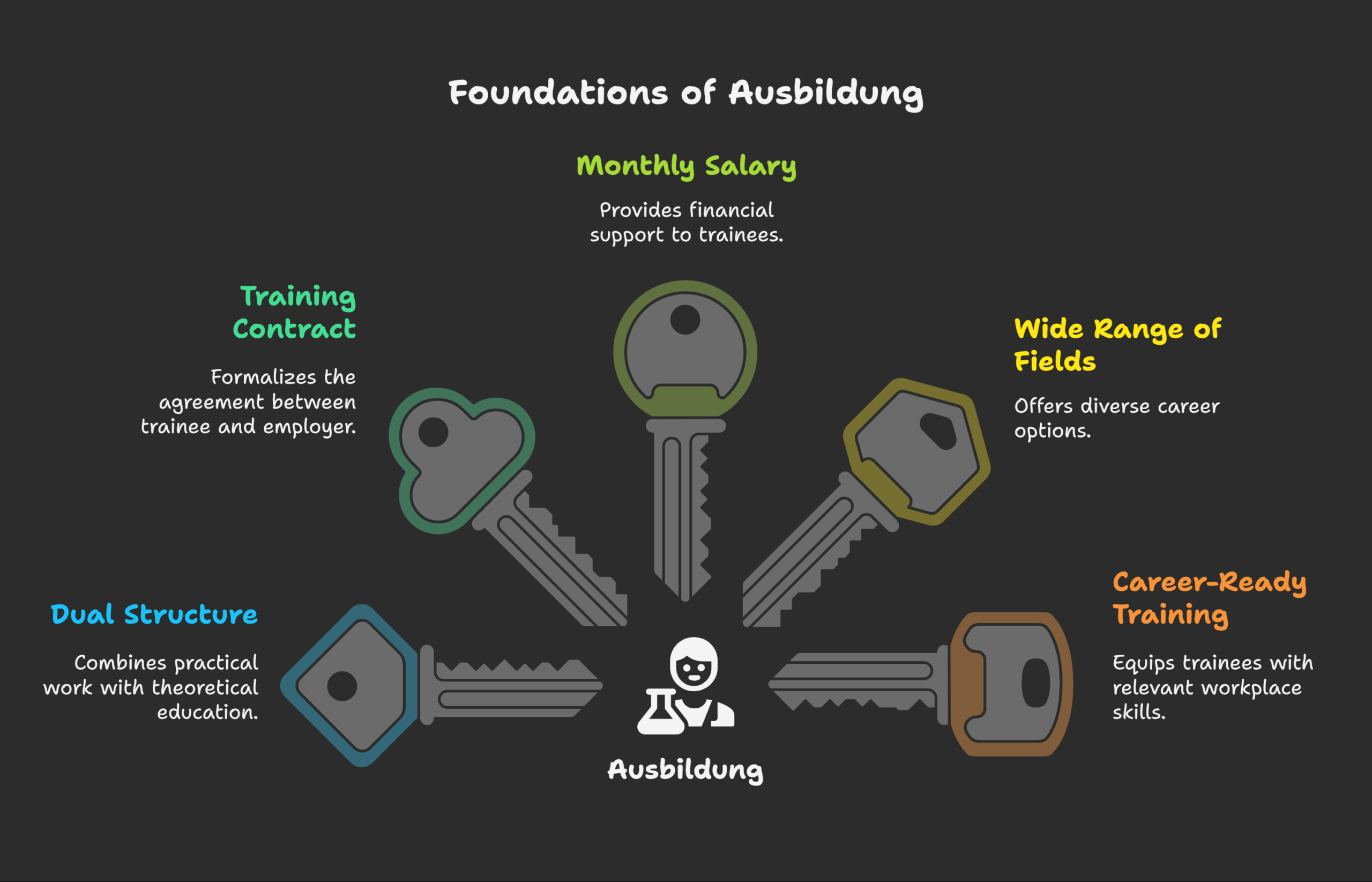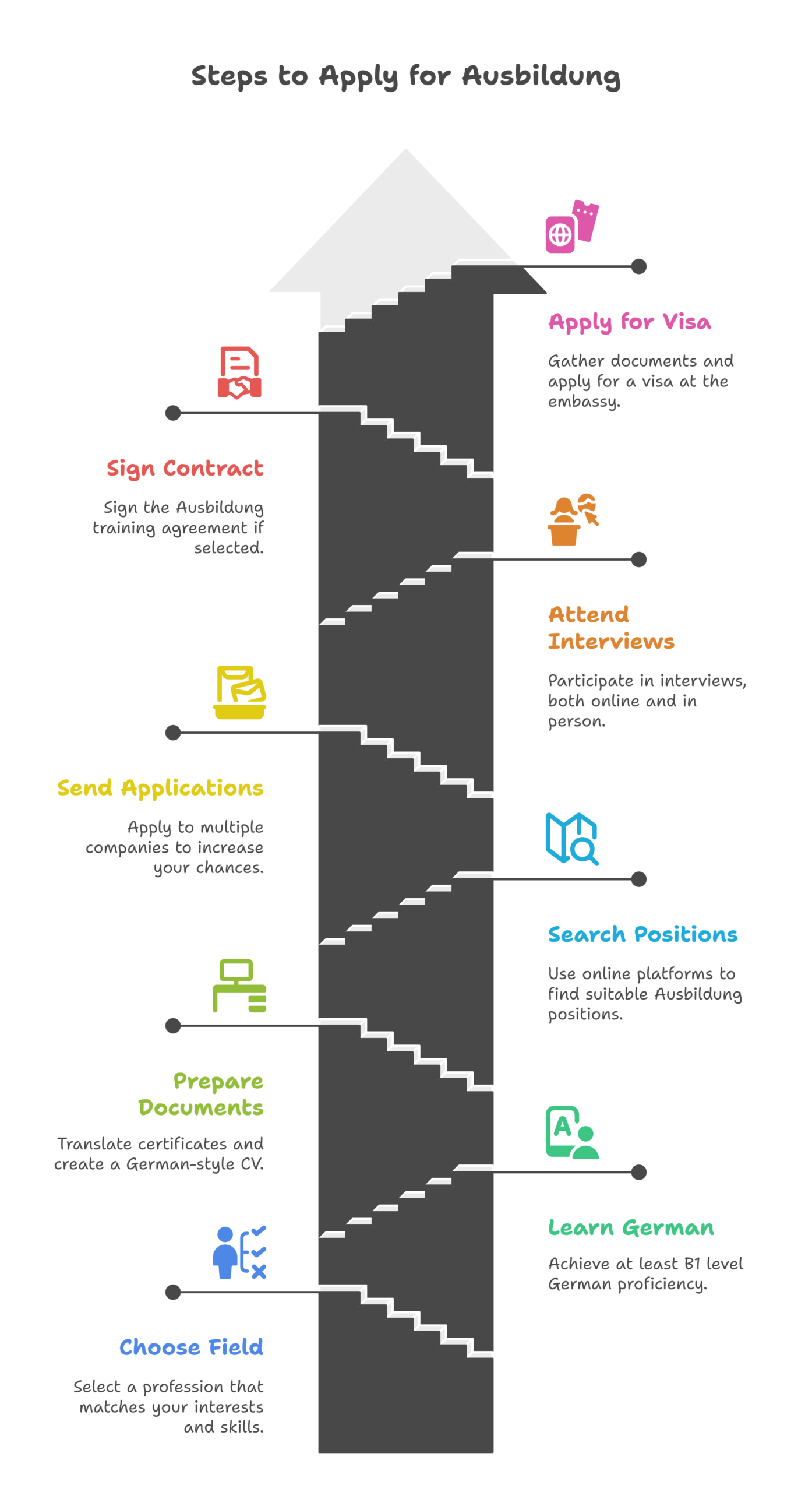Table of Contents
Free German A1 Mock Tests – Powered by AI!
Test your skills on our interactive platform. Get instant feedback from our AI to help you communicate better and track your progress. Start your free German mock test now.
Test Your German A1 for FreeFrequently Asked Questions
What is Ausbildung and how does it work in Germany?
Ausbildung is a vocational training program offered in Germany. It combines part-time classroom lessons with real-world job experience. Trainees sign a contract with a company and attend vocational school. Most programs last between 2 to 3.5 years. After completion, trainees receive a government-recognized qualification.
Who can apply for Ausbildung in Germany?
Anyone with basic school education and German language skills can apply. You need at least a 10th or 12th-grade certificate. A minimum of B1 level in German is required. Applicants from outside the EU also need a visa. Age between 18 and 30 is usually preferred.
Do I need to speak German for Ausbildung?
Yes, German is required for most Ausbildung programs. You need at least B1-level German skills to apply. Healthcare and technical fields often ask for B2. You must also pass a language exam for your visa. Good German skills help you succeed in school and the workplace.
Is Ausbildung paid or do I need to pay fees?
Ausbildung is usually free of tuition fees. In fact, trainees receive a monthly salary during the training. The amount depends on your field and year of study. You may earn between €850 and €1,300 per month. This salary helps cover your living expenses in Germany.
How can I find Ausbildung programs and apply?
You can search on websites like Ausbildung.de or Make-it-in-Germany.com. First, choose a field that suits your interests. Prepare your documents like a German CV and translated certificates. Apply directly to companies offering training positions. If selected, you will sign a contract and apply for a visa.
What types of Ausbildung programs are available?
There are two types: Dual Ausbildung and School-Based Ausbildung. Dual Ausbildung includes working in a company and studying part-time. School-Based Ausbildung happens mainly in vocational schools. Fields include healthcare, IT, hospitality, trades, and retail. Your choice depends on your goals and language level.
Can I stay in Germany after Ausbildung ends?
Yes, you can apply for a work visa after Ausbildung. If you get a full-time job offer, you can stay legally. After working for two years, you may apply for permanent residence. Some also qualify for the EU Blue Card if they meet salary limits. Many use Ausbildung as a long-term path to living in Germany.
What documents are required for the Ausbildung visa?
You need a valid passport, Ausbildung contract, and language certificate. You must also show proof of health insurance and financial support. Your school certificates must be translated into German. An embassy interview is usually part of the visa process. Start preparing early to avoid delays.
What is daily life like during Ausbildung?
Life during Ausbildung includes work, school, and personal time. Trainees work 35–40 hours weekly and get paid holidays. Weekends are usually free, with time to relax or explore. Cultural adjustment is needed, especially for international students. Learning German helps you adapt faster to life and work.
Is Ausbildung better than university in Germany?
It depends on your goals and learning style. Ausbildung is better for hands-on learners who want to work early. University is ideal for academic or research-based careers. Ausbildung takes less time, costs less, and offers job-ready skills. Many find stable careers and long-term residency through Ausbildung.














